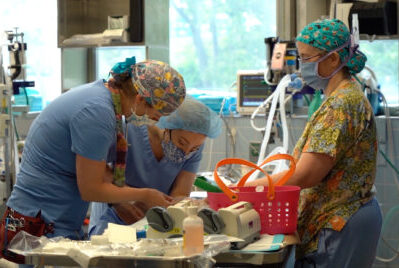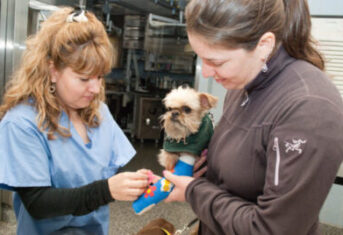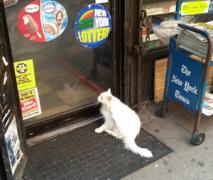Unprecedented Demand: Why Veterinarians are So Busy

Unprecedented Demand: Why Veterinarians are So Busy
The veterinary profession is all over the news lately. Thanks to the pandemic, the pet industry is booming, with household pet ownership increasing from 67 to 70 percent, and consumer spending on our furry family members at an all-time high. However, within veterinary clinics, pandemic protocols, restrictions, and staffing shortages have decreased the industry’s capacity for new and existing patients. So you have a perfect storm of increased demand and decreased supply, creating backlogs of routine and specialty care and overflowing animal ERs. At AMC, and across the veterinary industry, we are all doing everything we can to keep up and adjust to this latest challenge.
A New Type of Patient is Showing Up at the ER
While I can’t speak for other hospitals, I’ve noticed a shift in the overnight admission list at AMC. Previously, these admissions were decidedly geriatric. Now it seems to be full of puppies and kittens (under 1 year of age) with fractures and ingestion of non-food items. While there are more homes with puppies and kittens, I speculate that more time at home offers more chances for accidents. Before the pandemic, many puppies would have been crate trained and thus prevented from eating earbuds, corn cobs and coins. Now, with everyone working from home, we wrongly think we can supervise the puppy while on Zoom. Fractures could result from a similar situation. Puppies and kittens are frequently under foot. With more feet at home during the day, more accidents have happened where these delicate and curious creatures are stepped on or tripped over, resulting in fractures.
An Unprecedented Demand for Care
Something extraordinary happened at AMC recently. I was in a meeting where one of the attendees mentioned the possibility of diverting cases away from AMC’s ER because every cage in every ward in the entire hospital was occupied. This has never even been mentioned as a possibility in my time at AMC – normally we are the emergency room that other hospitals divert to! Fortunately, AMC did not have to divert cases in this instance, but the possibility is another indication of just how exceptional the demand for care has gotten.
This unprecedented demand is not limited to our Emergency and Critical Care Service, however. Many of our specialty services have appointments scheduled months in advance for both new and existing clients to accommodate the overwhelming pet care boom.
What can pet owners do to reduce the burden on veterinary clinics?
I have a few suggestions.
- Schedule specialty and routine care appointments well in advance to prevent lapses in critical treatment, tests and vaccines.
- Be aware of the trouble your puppy or kitten can get into, and keep small items, ribbon, thread, yarn and electric cords out of their reach.
- Don’t put your pet somewhere you would not put a young child, for example the top bunk or outdoors unsupervised.
- Keep your dog on a leash outdoors and keep your cat inside. This will decrease vehicular accidents and injuries from contact with other animals.
Finally, a number of veterinary clinics nationwide are pleading with their clients to be respectful to their staff, including Orchard Park Veterinary Medical Center in Buffalo, NY and Access Animal Hospitals in California, or as the sign in AMC’s lobby says, Be Kind. Remember your pet’s veterinary team is working as hard as they can to provide the best care they can for your pet.

































